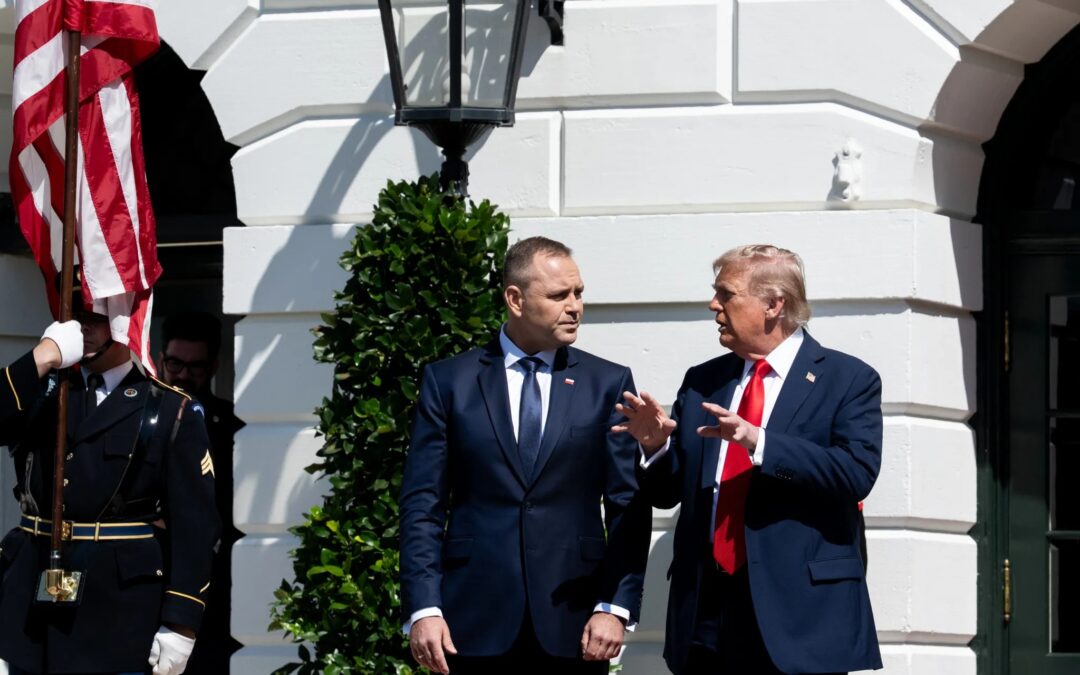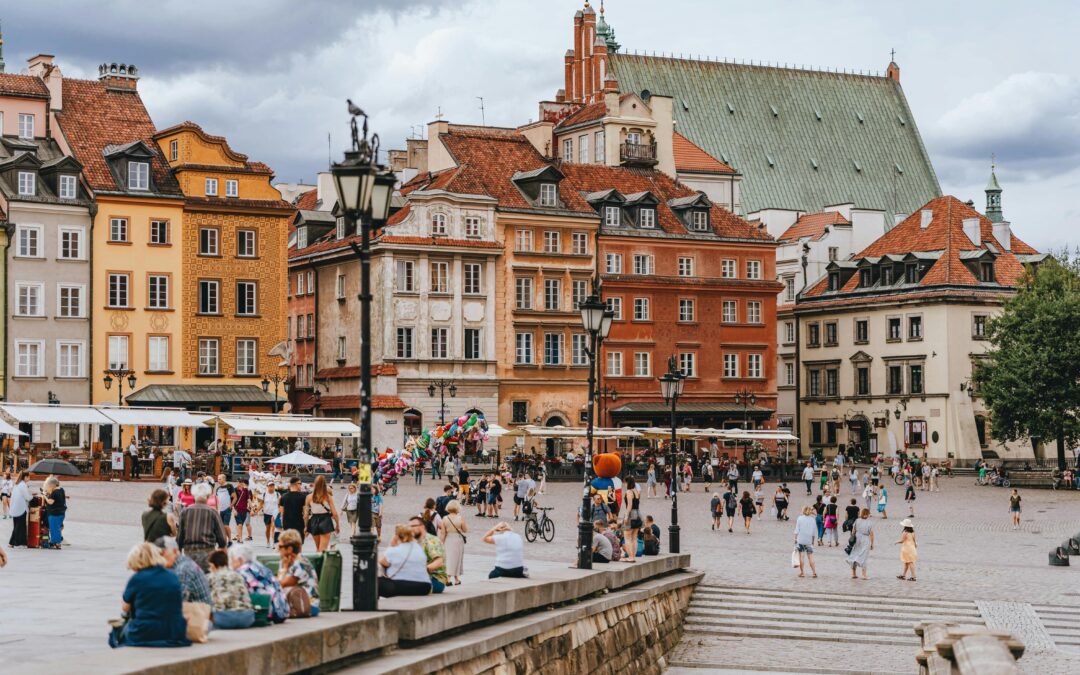Keep our news free from ads and paywalls by making a donation to support our work!

Notes from Poland is run by a small editorial team and is published by an independent, non-profit foundation that is funded through donations from our readers. We cannot do what we do without your support.
Ukraine’s ambassador has called on the Polish authorities to take “urgent action” in response to the vandalism of a Greek Catholic church in Poland, suggesting that it may be a sign of “anti-Ukrainian tendencies in Polish society”.
Poland’s foreign ministry has condemned the incident, in which a cross was removed from the church roof, but says it could be the latest “provocation” intended to stir tensions between Poles and Ukrainians.
On Saturday, local media reported that unknown perpetrators had removed a cross from a dome atop the Church of the Dormition of the Mother of God in the town of Legnica in southwest Poland. The vandalism was later confirmed by the local diocese on social media.
The church belongs to the Greek Catholic church in Poland, which is part of the Ukrainian Greek Catholic church.
Its website notes that it serves families who were part of the forcible relocation of ethnic Ukrainians from eastern to western Poland by the postwar communist authorities, as well as members of Poland’s large Ukrainian immigrant community.
Parishioners and clergy told broadcaster Radio Wrocław that the incident was “no ordinary theft”. The unknown perpetrators climbed the church by installing “anchors” in the wall, used a power tool to cut off the cross, then dumped it in a nearby lawn.
On Saturday afternoon, Ukrainian ambassador Vasyl Bodnar posted a photograph of the vandalism on social media and said that he “appeals to the law enforcement authorities of Poland to take urgent action in connection with the damage”. His embassy also sent a note to the Polish foreign ministry.
“I appeal to Polish friends and partners to immediately respond to the anti-Ukrainian tendencies in Polish society,” he added.
A spokeswoman for police in Legnica, Jagoda Ekiert, told the Polish Press Agency (PAP) that they had been notified of the incident and immediately visited the site, secured evidence, and launched an investigation.
Meanwhile, Polish foreign ministry spokesman Paweł Wroński condemned “this act of senseless vandalism, desecration of a place of worship, and an attempt to attack religious feelings”. He added that “we do not rule out [it was] a provocation aimed at causing national discord”.
In recent years, a number of incidents have taken place that Polish and Ukrainian authorities have found to be deliberate provocations intended to stir animosity between their two peoples. They have often accused Russia of being behind them.
Last month, a memorial in Poland to victims of the Volhynia massacres – in which around 100,000 ethnic Poles were killed by Ukrainian nationalists during World War Two – was spray-painted with the flag of the Ukrainian Insurgent Army (UPA), which led the massacres, and a slogan glorifying it.
Soon after, Poland arrested a 17-year-old Ukrainian believed to have carried out the vandalism as well as other acts of sabotage. Prime Minister Donald Tusk suggested that the suspect had – like some other young Ukrainians and Belarusians in Poland – been recruited and paid by Russia to carry out such actions.
In April, Poland and Ukraine jointly condemned the vandalism of a memorial in Poland commemorating the burial site of UPA members who died fighting the Soviets during World War Two. They called it a “deliberate provocation” that “serves the interests of Russia”.
Poland has arrested a 17-year-old Ukrainian who it says was recruited by Russia to carry out acts "intended to incite tensions between Poles and Ukrainians", including last week's vandalism of a monument to Poles massacred by Ukrainian nationalists in WW2 https://t.co/imzsjgaUVN
— Notes from Poland 🇵🇱 (@notesfrompoland) August 13, 2025
However, responding to the latest act of vandalism in Legnica, the head of the Association of Ukrainians in Poland, Mirosław Skórka, suggested that it “demonstrates the growing hostility towards the Ukrainian community in Poland”.
“We hope that appropriate action will be taken to prevent this type of incident from happening again and that the issue of growing anti-Ukrainian sentiment in Poland will finally be taken seriously,” he added, quoted by PAP.
His organisation has warned that negative sentiment towards Ukrainians – who are Poland’s largest migrant community, numbering over 1.5 million – has been growing in Poland recently.
For more on the bill vetoed by Nawrocki, and his proposed alternative law that would make benefits for Ukrainian refugees conditional upon them working and paying taxes, see our report from Tuesday https://t.co/harYLw1M5Q
— Notes from Poland 🇵🇱 (@notesfrompoland) August 28, 2025

Notes from Poland is run by a small editorial team and published by an independent, non-profit foundation that is funded through donations from our readers. We cannot do what we do without your support.
Main image credit: Diecezja Legnicka/Facebook

Daniel Tilles is editor-in-chief of Notes from Poland. He has written on Polish affairs for a wide range of publications, including Foreign Policy, POLITICO Europe, EUobserver and Dziennik Gazeta Prawna.



















